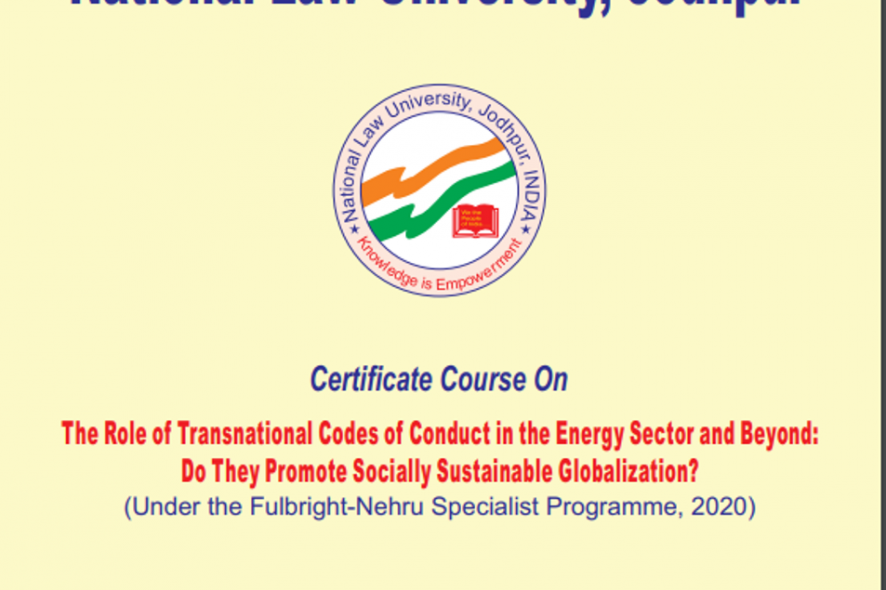The Certificate Course on The Role of Transnational Codes of Conduct in the Energy Sector and Beyond: Do They Promote Socially Sustainable Globalization? offered by NLU Jodhpur.
BRIEF OVERVIEW OF THE COURSE
This course will look at the large body of transnational “soft law” that has developed in the petroleum industry and many other sectors to respond to the demands from citizens, governments and NGOs for better environmental, safety, labor and human rights standards in the global operations of multinational companies. This “soft law” often originates in codes of conduct or principles of good practice based on voluntary standards developed by working groups from industry, NGOs, inter-governmental organizations and academics.
The course will trace how this “soft” law can harden into mandated standards that companies must obey even though the codes and principles are “voluntary.” This process occurs through government regulation, the enforcement of contractual provisions requiring “good or best industry practice,” and in tort litigation. What are the advantages and disadvantages of using these codes of conduct as a type of transnational regulation of multinational companies?
Case studies from the international petroleum and mining sectors are used to explore how this type of transnational governance has grown in response to offshore catastrophes like the Macondo blowout in the Gulf of Mexico, human rights abuses by government security forces at oil field sites, and unsafe working conditions and large-scale pollution in corporate operations.
The course looks at the practices used today by companies that have pledged to support the UN General Principles on Business and Human Rights, the Voluntary Code on the Use of Security Forces, and others. Many codes of conduct apply to other sectors, including agriculture, apparel, and information technology. The lessons learned by major Western oil companies are applicable to Nike, Nestles, and Google and many other companies.
The class will have small group exercises to do as a team and encourages interactive discussion.
IMPORTANT DATES
Registration Opens – January 12, 2020
Registration Closes – February 12, 2020
COURSE FEE
Students – Rs. 2,000
Professionals – Rs. 3,500
MODE OF REGISTRATION&PAYMENT






